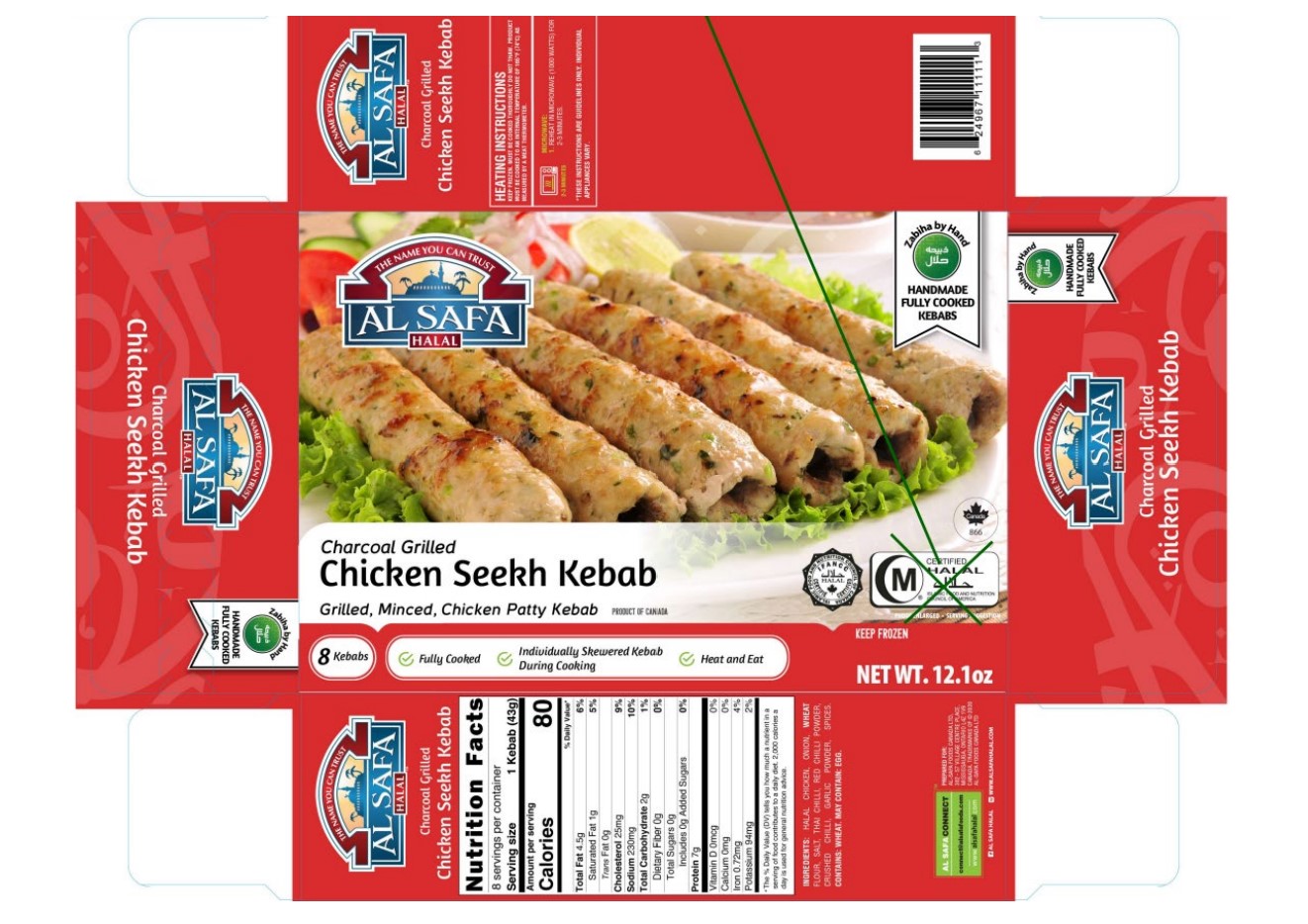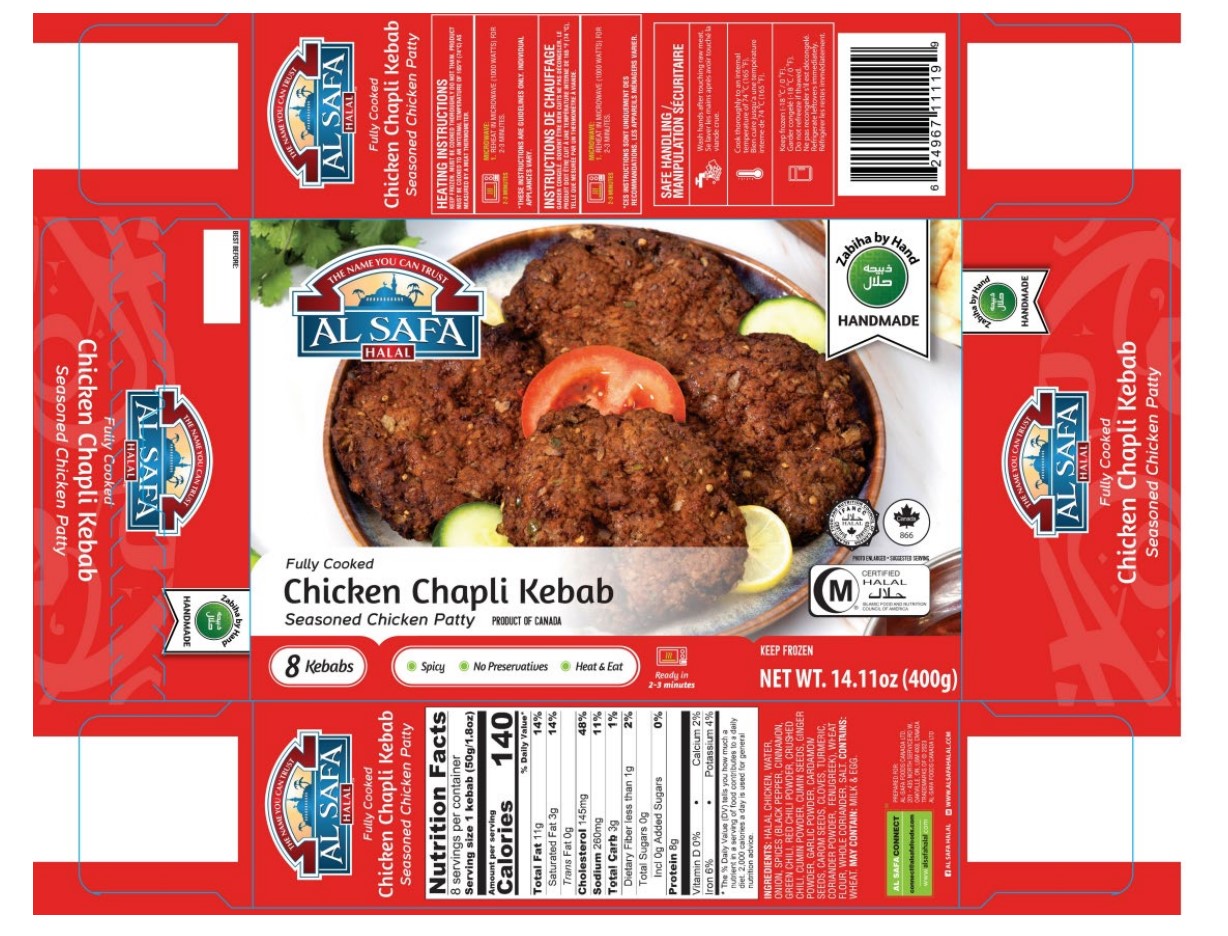The U.S. Food Safety and Inspection Service (FSIS) has issued a recall for two imported chicken products due to potential health risks.
These frozen, ready-to-eat chicken kebab items, distributed by Canada-based Al-Safa US LLC, are being recalled because they may be contaminated with Listeria monocytogenes.
Possibly Deadly

This bacterium is known to cause food poisoning and can sometimes result in fatal infections.
The recalled products were manufactured in Canada on June 5, 2024, and subsequently imported into the United States on June 13 and June 21, 2024.
Product Recalled

The specific products affected by this recall include: A 12.1-ounce cardboard box labeled “Al Safa Halal Charcoal Grilled Chicken Seekh Kebab Grilled, Minced, Chicken Patty Kebab”.
The use-by date is November 30, 2025 and the code 0605404 is printed on a sticker on the package.
Second Product Recalled

Another product is a 14.11-ounce cardboard box labeled “Al Safa Halal Fully Cooked Chicken Chapli Kebab Seasoned Chicken Patty”.
The use-by date is also November 30, 2025 and the code 0605416 is printed on the package sticker.
Distributed Nationwide

Both products carry the establishment number 866 within the Canadian mark of inspection.
In total, approximately 2,010 pounds of these chicken products were distributed to retail locations across the United States.
Al-Safa Contacted

Newsweek reached out to Al-Safa US LLC for a statement via their website’s contact form.
However, this inquiry was made outside of regular business hours.
Symptoms of Listeriosis

Listeria monocytogenes can contaminate food and beverages, leading to listeriosis, a type of food poisoning.
Symptoms of listeriosis can range from mild to severe and include high fever, intense headaches, stiffness, nausea, abdominal discomfort, and diarrhea.
Possibility of Delayed Symptoms

According to the FSIS, symptoms may not appear until up to two months after consuming contaminated food.
In severe cases, the infection can spread beyond the gastrointestinal tract.
High-Risk Groups

Vulnerable populations, such as the very young, elderly, pregnant women, and individuals with weakened immune systems, are at higher risk of serious complications.
For pregnant women, a Listeria infection can lead to miscarriages, stillbirths, premature births, or life-threatening infections in newborns.
Most Recover

However, most healthy individuals outside these high-risk groups typically recover fully from the infection.
The Centers for Disease Control and Prevention (CDC) estimates that around 1,600 cases of listeriosis occur annually in the U.S., with approximately 260 resulting in death.
Careful Monitoring

Listeriosis is ranked as the third leading cause of death from foodborne illness in the United States.
Consumers who have purchased the affected products are advised to monitor their health.
Report to Healthcare Providers

If they experience any symptoms of listeriosis, they should contact their healthcare provider immediately for further guidance.
The FDA recommends that consumers remain vigilant and report any adverse health effects possibly related to the consumption of these recalled chicken products.








































